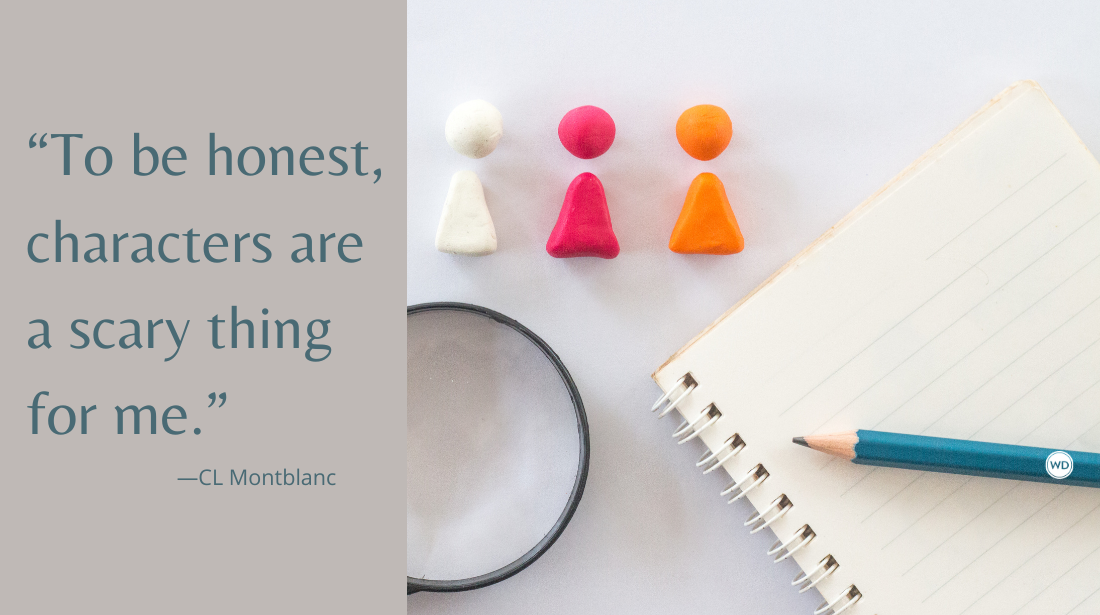7 Mindset Shifts for Writing Your Best Book—and Enjoying the Process More
From remembering to have fun to knowing when to move on to the next idea, author Jaclyn Goldis shares seven mindset shifts for writing your best book.
When my publicist asked if I’d like to write an article for this column, she offered the topic of “top tips for writing a page-turning thriller.” It’s an interesting topic, no doubt, but I don’t think I’m the best author to write it. That is because, though I adore writing thrillers and am excited for my first to release soon, I approach writing far more from an intuitive level than a cognitive one.
While, of course, I do study my craft and read extensively in my genre, those aspects feel foundational, but not the most pivotal of my process. Even more, I focus on tapping into my intuitive wisdom, shifting my mindset, and increasing the joy I experience along the way. Here are my top tips.
Make your book as fun as possible.
When I approach a new book, in deciding setting, characters, plot, I keep asking myself one question: What would make me even more excited to write? Thus, I dig into my intuition to pick an intriguing setting that I want to spend a year or more inside, a mystery that feels enticing and fresh, and characters whose professions make me curious to research and learn.
Throughout the process, I keep positing: How much more fun can I make this? And then revelations descend: Ooh, I can set the book in Provence! Ooh, I can incorporate World War II aspects into a contemporary mystery, drawing on my own family history! Ooh, I can write an artist character and learn about that exotic-to-me world!
I deeply believe that the more fun I’m having, the more successful I will be. And as a corollary, perhaps an unpopular opinion: I do not believe in writing the book that readers want, whatever that even means, and whether it can be divined from the onset. I believe in writing to please myself, writing the book I want in the world—and that readers will then come.
Books are the receptacle of an author’s light; my only responsibility as I view it is to shine my light powerfully. And I don’t know another way to do so than having the most fun I possibly can. This is hand-on-heart my top tip for writing a page-turning anything.
Focus on what is going right and watch it expand.
Of course, stumbling blocks present when writing a book, especially if it’s your first. But as a longtime student of manifestation, I believe that what you focus upon expands. You’re getting agent feedback that your plot is good, but your characters are one-dimensional? Okay, it’s easy to sink into the negative; that is human nature.
But instead, fortify the positive. My books are twisty, and I am an amazing writer, and thank you feedback—now I’m going to nail my characters. Get into the habit of seeing opportunities in criticism, not roadblocks.
Cultivate the joy in the process.
The yearning for recognition and financial compensation from our craft is natural, but focus foremost on the joy of creation, the fact that we writers get to create the worlds that live in our heads. Bathe in appreciation every time you scratch your favorite pen over a fresh notebook in dappled sunlight and a thorny plot problem dissolves.
Say thank you when a character whispers her quirky ways, making you spurt up your coffee in laughter, and bask in that stretch near the end of a book when the words just flow and flow and flow. Marinate in the smile in your soul that you get to do this joyful, creative thing. And resolve that for every complaint or fear or lack mindset that pops up to say hello, you will invest as much brain space appreciating the parts that are singing.
Believe that it’s working.
Sure, sometimes writing a book can be hard and demoralizing, and it can be difficult to find an agent and get published, but I don’t find those productive beliefs to maintain—and in fact they are not wholly true, certainly not for everyone. These days, I find writing a book quite a flowing and enjoyable endeavor, and I ascribe that to the beliefs I have fortified.
For instance, if my plot isn’t jiving, I lean on my belief that the solution is right around the corner. If I can’t get a character right or fear my book just isn’t going to work, I treat it like a beloved friend, and I talk to it. I say, “Thank you for telling me what you want to be. I trust you. What a privilege that this book and idea chose me! It’s working, it’s working, it’s working.” Then, sometimes, I take a break, go walk in nature, or fiddle on a short story. Invariably, a day, a week, a month later, I have my lightbulb moment, and everything flows again.
We humans have the tendency to catastrophize, but I’d posit that it can’t hurt to put energy behind the best-case scenario, even if we simultaneously entertain our fears. I continually foster and feed beliefs that a book can work out, find readers who adore it, even be financially lucrative. All of this is possible—it’s happening to some authors out there. Get into the habit of saying, “What if it goes better than I imagine? Why not me?”
Know when to move on to greener pastures.
There is no such thing as a failed book, because everything on our journey propels us to the next greatest step. I have several books that will never see the light of day, but the lessons I learned from them are all invisibly present in the books that do.
Sometimes it’s worth it to push through, and other times it’s okay to thank a book for everything it taught you and let it go in favor of something better. Only you will know, deep down, the right move, but fostering an abundant mindset means knowing your creativity is ever flowing.
It’s why I can ruthlessly cut paragraphs and chapters; I trust that the next thing I write will be even better, and I’m not worried about a well drying up. Rather, I see creativity as a stream constantly moving and replenishing, getting evermore abundant and powerful.
Reclaim the power by resolving you will never give up.
I remember a pivotal point in my career when I’d been querying a book for two years to no avail. I had several books that had failed to attract agent interest behind me; I really thought this one was it. And I’d quit my BigLaw job on the cusp of partnership to go all-in on my writing dreams. What if it didn’t pan out after all?
I had a teary reckoning with myself, where I promised myself I would never give up. I realized it might never happen—getting an agent, a book deal. I didn’t have control over those things. But I decided I loved writing, I loved creating worlds, and I would keep on doing so forever, no matter the external validation, or not. And lo and behold, I wound up signing with my fantastic agent only two weeks later—and we’ve now been working together nearly five years!
Sometimes the miracle really is just around the corner, and the difference between the people who fail and succeed is that the latter just kept on going and hoping a little longer.
Appreciate and believe good things because it feels good to do so.
Finally, even if you don’t buy into the power of manifestation, I still suggest focusing on the things that are going well and reaching for the better beliefs. Why? Because it feels good.
It feels good to appreciate the small pleasures, the new pen and notebook, the character who feels so alive she’s practically writing herself, the delightful research and interviews with experts that fill you with enthralling plot ideas. And it feels good to imagine that everything is possible, that miracles indeed happen, that we are around the corner from our next breakthrough, our next success, readers whose lives fill up with light and love and enjoyment because of our words.
All we have, after all, is this here and now moment, and isn’t it empowering to know that right here and now we can choose something wonderful to appreciate and believe?
Jaclyn Goldis is a graduate of the University of Michigan, Ann Arbor, and NYU Law. She practiced estate planning law at a large Chicago firm for seven years before leaving her job to travel the world and write novels. After culling her possessions into only what would fit in a backpack, she traveled for over a year until settling in Tel Aviv, where she can often be found writing from cafés near the beach. She is the author of The Chateau and The Main Character.








